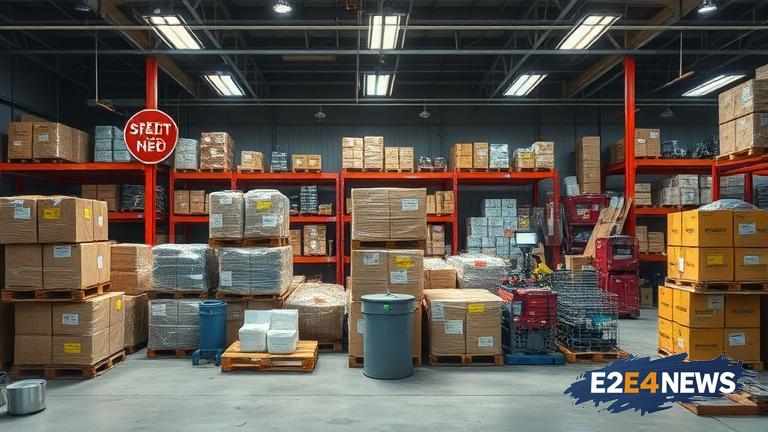Ather Energy, a leading Indian electric vehicle manufacturer, is facing a significant challenge in its supply chain due to a global shortage of rare earth magnets. These magnets are a crucial component in the production of electric motors, which are used in Ather’s electric scooters. The shortage has affected the company’s ability to meet the demand for its products, leading to a backlog of orders. Ather’s dealer network has also been impacted, with many dealers facing difficulties in meeting customer demand. The company has been working to mitigate the effects of the shortage, but it is likely to take some time to resolve the issue. Rare earth magnets are used in a wide range of applications, including electric motors, wind turbines, and consumer electronics. The shortage is attributed to a combination of factors, including increased demand, supply chain disruptions, and geopolitical tensions. China, which is the world’s largest producer of rare earth magnets, has been facing environmental and regulatory challenges, leading to a reduction in production. Other countries, such as the United States and Australia, are also exploring ways to increase their production of rare earth magnets. However, it is likely to take several years for new production to come online, and in the meantime, companies like Ather Energy will have to navigate the challenges of the shortage. Ather Energy is not the only company affected by the shortage, with many other electric vehicle manufacturers also facing similar challenges. The Indian government has been working to promote the development of the electric vehicle industry, but the shortage of rare earth magnets is a significant hurdle that needs to be addressed. Ather Energy has been working to develop alternative sources of rare earth magnets, but it is a complex and time-consuming process. The company has also been exploring ways to reduce its dependence on rare earth magnets, including the use of alternative materials and designs. However, these efforts are still in the early stages, and it is likely to take some time to develop viable alternatives. In the meantime, Ather Energy will have to continue to manage the effects of the shortage, including prioritizing production and managing its dealer network. The company has been communicating with its customers and dealers to manage expectations and provide updates on the status of orders. Ather Energy is committed to delivering high-quality products to its customers, and it is working to resolve the issues caused by the shortage as quickly as possible. The shortage of rare earth magnets is a reminder of the complex and interconnected nature of global supply chains, and the need for companies to be agile and adaptable in response to changing circumstances. As the demand for electric vehicles continues to grow, companies like Ather Energy will have to navigate the challenges of the shortage and develop new strategies for managing their supply chains. The Indian electric vehicle industry is expected to continue to grow in the coming years, driven by government support and increasing consumer demand. However, the shortage of rare earth magnets is a significant challenge that needs to be addressed in order to realize the full potential of the industry. Ather Energy is well-positioned to navigate the challenges of the shortage, given its strong track record of innovation and customer focus. The company has been working to develop new products and technologies, including a range of electric scooters and motorcycles. Ather Energy has also been expanding its dealer network, with a focus on providing high-quality customer service and support. The company has a strong commitment to sustainability and environmental responsibility, and it is working to reduce its environmental impact through the use of renewable energy and sustainable materials. Overall, the shortage of rare earth magnets is a significant challenge for Ather Energy, but the company is well-positioned to navigate the issue and continue to deliver high-quality products to its customers.





